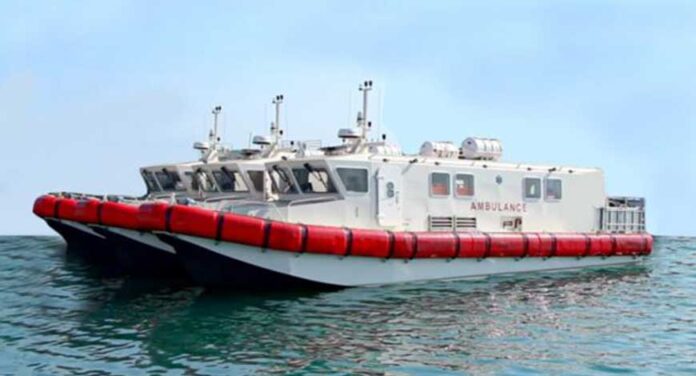Prayagraj (Uttar Pradesh) [India], January 12: In a bid to enhance emergency services during the ongoing Maha Kumbh, the National Disaster Response Force (NDRF) has deployed a ‘water ambulance’ at the Sangam. This ambulance, fully equipped with medical facilities and staffed by doctors and senior NDRF personnel, will operate round the clock throughout the event to provide immediate medical assistance to devotees.
NDRF Deputy Inspector General (DIG) Manoj Sharma referred to the water ambulance as a “roaming hospital,” capable of swiftly navigating the Ganga to provide on-site emergency care. The ambulance is equipped with oxygen cylinders, emergency medications, monitors, and other critical medical supplies. Following the event, it will be stationed at the NDRF center in Varanasi.
Amidst the cold and fog, devotees gathered at the Triveni Sangam on Sunday for a holy dip. Despite the weather, the atmosphere was vibrant with enthusiasm. Devotee Hemlata Tiwari shared her joy, stating, “It is extremely cold here, but we are enjoying a lot. Devotees from all across the country come here. I am very happy that I got this opportunity.”
For the safety of the massive crowds, the Uttar Pradesh Police have implemented a robust security system called “impenetrable security Chakravyuh.” More than 1,000 police personnel, including 71 inspectors, 234 sub-inspectors, and 645 constables, are deployed at 102 checkpoints along seven routes connecting Prayagraj to nearby districts. Additionally, 113 Home Guards/PRD jawans and three sections of the Provincial Armed Constabulary (PAC) are part of the security detail.
To ensure continuous surveillance, advanced equipment such as five Vajra vehicles, 10 drones, and four anti-sabotage teams have been deployed. The police also utilize underwater drones and 2,700 AI-enabled cameras to monitor the Maha Kumbh campsite area.
The Maha Kumbh, celebrated every 12 years, is anticipated to attract over 45 crore devotees. The main bathing rituals (Shahi Snan) are scheduled for January 14 (Makar Sankranti), January 29 (Mauni Amavasya), and February 3 (Basant Panchami). The event will conclude on February 26.


